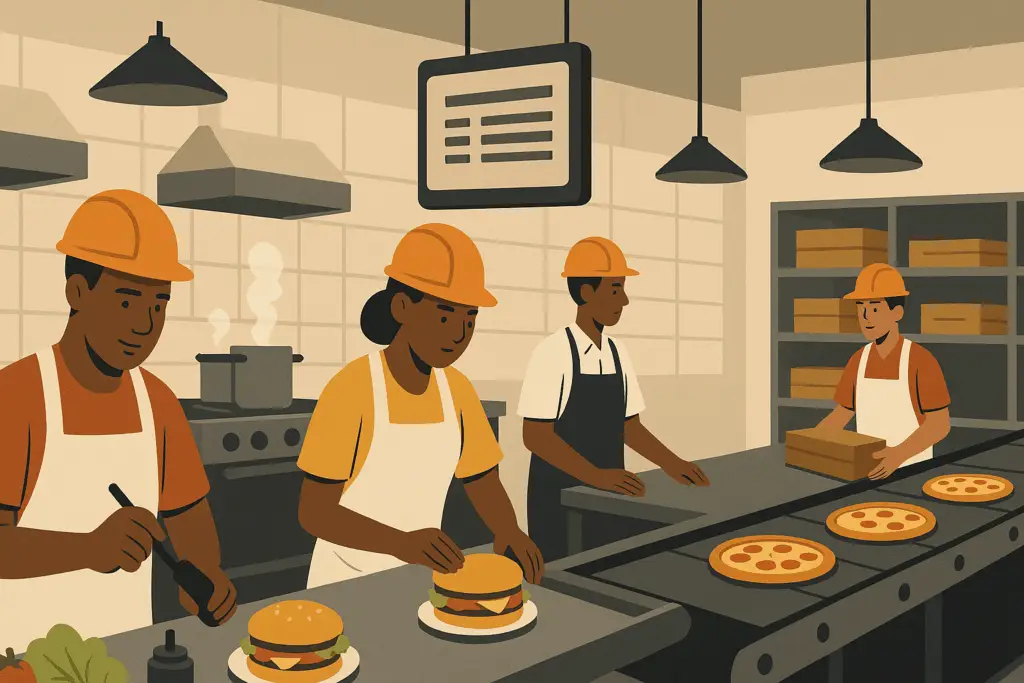Globally, the quick service restaurant (QSR) industry is booming — but it’s also getting harder to run.
Rising food costs, complex supply chains, growing customer expectations, and the need for consistency across multiple locations have turned what used to be simple restaurant operations into something else entirely.
Today’s food businesses are mini-manufacturing centers.
A Kitchen? No — A Production Line
Every day, a busy restaurant in Lagos, Nairobi, or Accra is managing hundreds (sometimes thousands) of orders.
From receiving supplies (raw materials) to prepping meals (processing), assembling (plating/packaging), and dispatching (pickup, delivery, dine-in), the flow mirrors a manufacturing plant.
And just like in a factory, the margin for error is razor thin.
Without the right systems in place, chaos takes over:
-
- Stockouts and food waste eat into profits.
-
- Inconsistent quality damages customer trust.
-
- Delays hurt both brand reputation and sales.
The Critical Need for Purpose-Built ERP
Unfortunately, many restaurants still try to manage operations using a patchwork of manual processes, Excel sheets, and simple POS systems.
It doesn’t work anymore.
QSRs need ERP software built specifically for their realities — software that understands the flow of ingredients, recipes, inventory, sales, procurement, payments, and multi-location management.
An ERP built for Africa, where supply chains can be unpredictable, where cashflow must be tightly managed, and where speed is survival.
This Is No Longer Optional
The QSR brands that are growing — from local champions to pan-African chains — all have one thing in common: they run like manufacturing businesses.
They invest in systems that help them:
-
- Track every ingredient and meal in real time
-
- Standardize operations across locations
-
- Cut waste, monitor costs, and maximize margins
-
- Deliver consistent customer experiences — no matter the branch or city
The World’s Food Future Is About Production
Restaurants that understand they are running production floors — not just kitchens — will win the future.
And the ones who equip themselves with the right ERP systems?
They’ll scale faster, operate more efficiently, and build brands that last generations.
Final thought:
In Africa’s fast-growing restaurant industry, it’s not just about who cooks the best food anymore.
It’s about who produces it best — consistently, efficiently, and profitably.
If you’re running a restaurant today, think like a factory manager.
And power your business with the tools a mini-manufacturing center needs.

